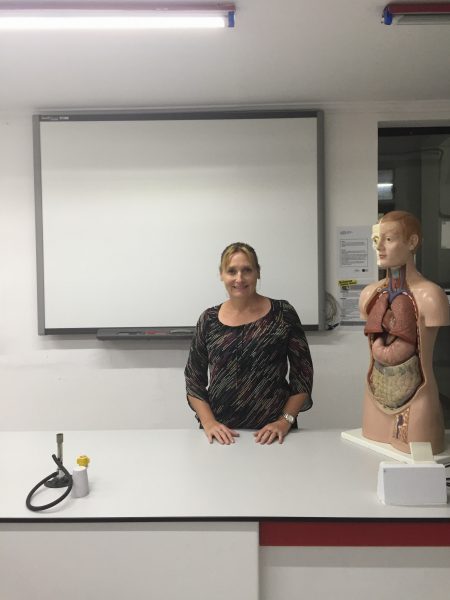Teaching and travelling might be the perfect combination for those who are looking to build a career in education, with a bit of adventure.
Apart from being the go-to institutions for expatriate children in Indonesia, international schools are also known for attracting foreign educators who wish to make the most of their careers by teaching in different parts of the world.
Julie Louis Moreno teaches biology at the Australian International School (AIS) in Jakarta. She arrived in Indonesia more than eight years ago after previously residing in London, Mexico City and Saigon, where she also taught on the international school circuit. Her motivation to get more foreign experience in education eventually led her to the world’s largest archipelago, where there are many educational problems to be solved.
“We had been living on the Gold Coast for a year while my husband finished his master’s studies and we had our second child, but we both had itchy feet and missed the excitement of living abroad, especially the cultural experience and the chance to learn a new language,” explains Moreno.
The couple decided to take a teaching offer in Indonesia; Moreno as a teacher and her husband as an education consultant. When Moreno first landed in the capital, she began working part time at a local international school. Soon after, she came across a job vacancy for a biology teacher at AIS and decided to apply.
Moreno reveals that like most international schools, AIS offers a global curriculum. But it is the school’s relatively small size that allows her to further get to know her students and watch them grow.
To promote inclusion and diversity, AIS promotes what is calls “Global Citizenship” into all aspects of its curriculum. This encourages students to be aware of recent global issues, as well as learn to evaluate them from different perspectives.
Moreno thinks that Global Citizenship plays an important role in developing students’ critical thinking and the skillset to properly question and respond to important issues. Additionally, the programme aims to help students reflect on their life goals and learn how to become ‘compassionate citizens’ with the ability to take action.
Programmes like Global Citizenship also help students realize their full potential. “I have been really interested in this programme since I attended the first Global Citizenship Summit in 2009 and saw how teachers can motivate students to make real changes in the world and examples of students who are doing this.”
For educators like Moreno, working in different nations certainly means that you must quickly adapt to various kinds of education environments.
This ultimately requires a teacher to not only learn the local culture, but also the education systems that take place in each respective country.
In the past, Moreno overcame all kinds of challenges at a multitude of educational institutions. Before teaching at AIS, she worked in schools where the majority of the students did not speak English as their mother tongue.
This was difficult because Moreno had to deliver teaching materials for subjects like science, mathematics and humanities to a group of students who were still learning Basic English. For Moreno, improvisation became an important skill in the classroom.
She was forced to come up with new strategies so that students still get the best learning experiences despite the language barrier. After completing several courses on teaching language, she learned how to create a conducive environment in her classroom through activities that encourage deeper student engagement like outbound excursions, practical experiments and peer teaching.
Finding a work-life balance also becomes an issue with many international school teachers. According to Moreno, she is constantly pushing herself to come up with new approaches for teaching.
Luckily, Moreno thinks that Indonesia provides the kind of environment that allows international teachers to maintain quality time outside of work. She admits that she is pleased by the strong kinship that the local community provides. According to her, this is in contrast to other countries she has worked and lived in before.
“There is a great sense of community and friendliness that is often missing in Australian society. Indonesians are very warm people and we love meeting local people when we travel,” says Moreno.
Teaching overseas has broadened Moreno’s horizons. Although some of us may think that the job translates to having a long holiday, the reality offers more work than most would expect. But for those who have what it takes, the experience might just be worth the sacrifice.
AIS Indonesia, formerly Australian International School, is an independent multi-campus school providing an international education to all nationalities in Indonesia. We offer a fully integrated Australian Curriculum from Preschool to Year 6 in our Primary Campus, Jakarta and Year 7 to Year 12, including the IB Diploma, in the High School Campus, Jakarta. The Bali Campus offers Preschool to Year 12 and the Balikpapan Campus offers Preschool to Year 8. To apply for a teaching position, please visit http://www.ais-indonesia.com




